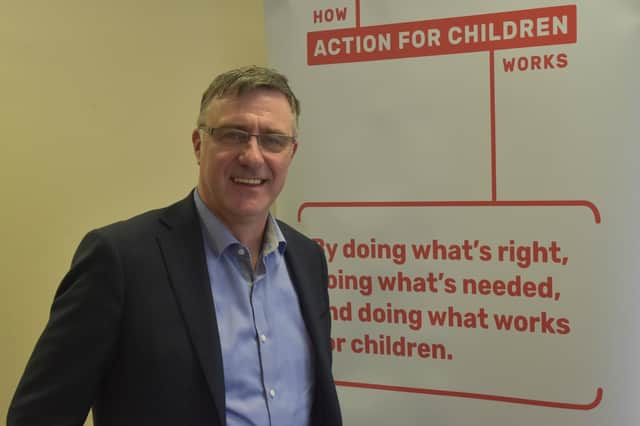Schools must prioritise kids’ emotional wellbeing - Paul Carberry


In recent weeks, pupils have returned to classrooms in what will be a very different looking school year for everyone. In fact, before the schools went back, we published research showing that more than half of parents worried about their children returning and being able to focus on their studies.
Pupil wellbeing is clearly an educational priority and effective social and emotional competencies are inextricably linked to better achievement and attainment. A focus on pupil wellbeing is crucial to the recovery from lockdown and to mitigate the impacts of the pandemic. The recently published Public Health Scotland and Scottish Government-backed survey, ‘How Are You Doing’, gathered feedback from over 10,000 children between April and June. It found that one in three children did not generally feel cheerful and in a good mood over the period, and half of those asked said that they were worried about how their family was doing.
Advertisement
Hide AdAdvertisement
Hide AdThe study outlined a range of evidence that lockdown was linked to social isolation, anxiety and a drop in health and wellbeing amongst children and young people. Moreover, for pupils from low income families and deprived communities, the impacts are likely to be even more profound. The return of full-time schooling presents an opportunity to promote resilience and recovery by prioritising children and young people’s emotional wellbeing as the best way of supporting pupils back to learning. Without targeted action, there is a real risk that the long-term impacts of Covid-19 will further widen the poverty-related attainment gap.
At Action for Children, in Scotland we have been developing an innovative, whole-system approach to supporting improvements in pupil wellbeing across school, family home and community settings. Our new model is built on learning and best practice, with a focus on evidence-based programmes at both primary and secondary school levels, to drive impact and outcomes. We offer a full spectrum of support from prevention and early help through to more intensive support and targeted 1:1 counselling for children and young people in greatest need.
Furthermore, we aim to build capacity across the wider system to better support young people’s emotional wellbeing. The model is based on working beyond school with families and within communities. We will build wider capacity and transfer knowledge to parents, carers and other professionals. This will establish a common language and consistent response around young people’s emotional wellbeing to reinforce positive outcomes. Over time, we hope to shift the balance away from intensive support to early help and prevention while helping young people develop a toolkit for good lifelong emotional wellbeing.
This builds on the success of our UK-wide Blues Programme, funded by Royal Mail, another evidence-based project, which aims to help young people with their mental health. In Glasgow, one of the areas the project was delivered, the results showed the importance of projects like this. 81 per cent of pupils who took part demonstrated improvements from pre to post Blues, 79 per cent cited increased confidence, 78 per cent increased self-esteem, 73 per cent had better relationships with family and peers while 73 per cent had improved relationships with their school.
In Inverclyde, thanks to an innovative partnership approach with Inverclyde Council and Inverclyde Health and Social Care Partnership, we recently launched our new model in that area. We expect to reach each of Inverclyde’s six secondaries, 20 primaries, two additional support needs (ASN) schools and two independent schools in the first 12 months of this three-year partnership.
On the back of the Inverclyde launch, we have been in touch with education heads across Scotland. It is our hope that we can build on the Inverclyde launch and deliver the service in schools the length and breadth of Scotland and play our part in supporting and improving the emotional wellbeing of young people across Scotland.
Paul Carberry is the Action for Children director for Scotland.
Comments
Want to join the conversation? Please or to comment on this article.